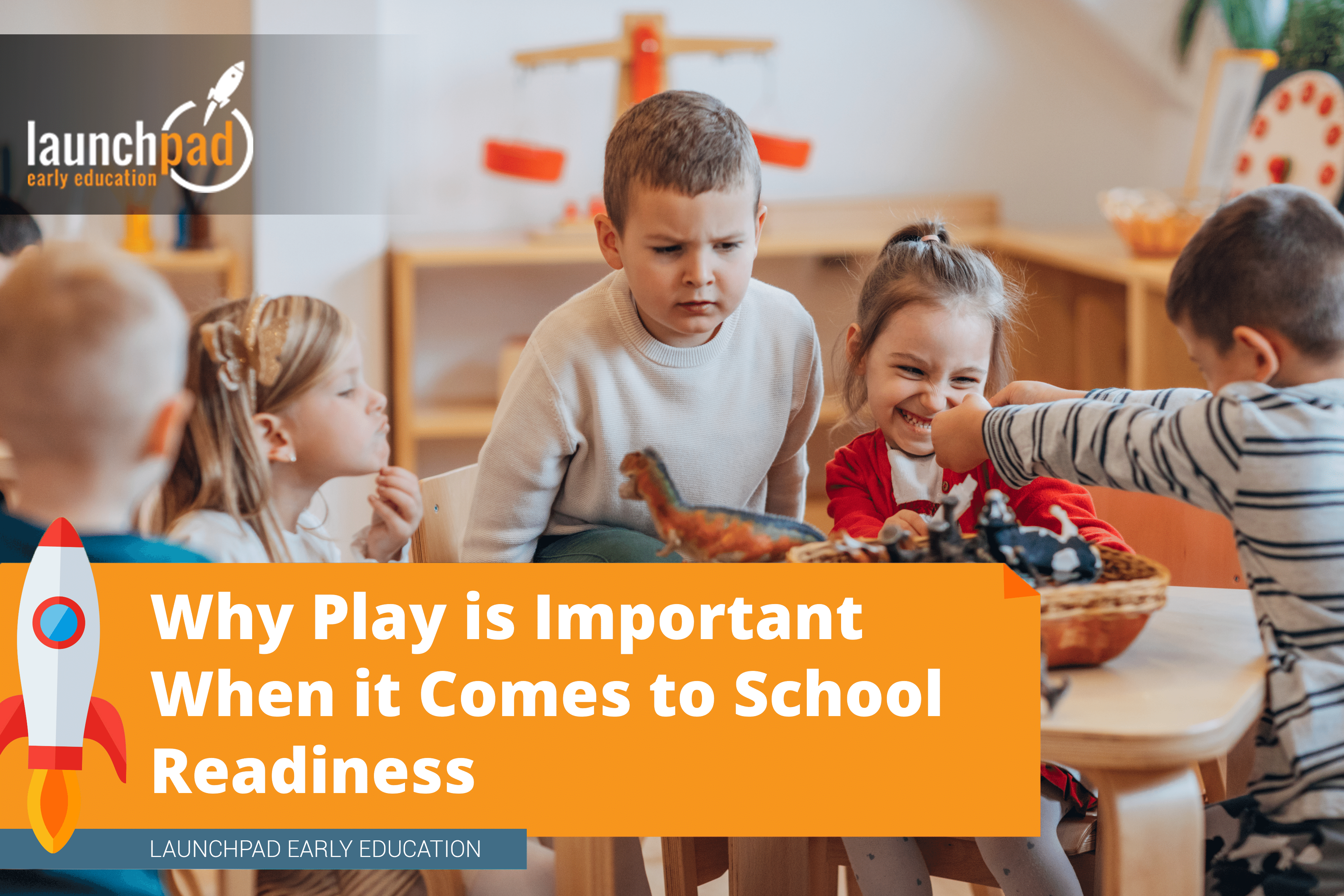Play is an essential and often overlooked component factor of healthy early childhood development. Play presents the most natural opportunities for children to learn and grow. When children interact and exercise their imaginations, it has a positive impact on the development of social skills, emotional intelligence, creativity, and physical health. Play also plays an important role in terms of children’s school readiness. These activities help kids develop vital social skills (such as sharing and cooperation) and cognitive skills (like thinking creatively and solving problems.) Here, we will discuss seven benefits of play when it comes to children’s school readiness.
1. Play enhances cognitive skills
In terms of cognitive development, play greatly enriches a child’s creativity, problem-solving, and abstract thinking. According to the Smithsonian Institute, “Play encourages learning through exploration, discovery, investigation, and experimentation.” The more spontaneous the type play is, the greater the opportunity for learning. While more structured play at school may present opportunities for kids to learn about letters or numbers, it doesn’t offer as much educational value for youngsters who haven’t yet developed school-readiness skills. At this point in their lives, they benefit more from “open-ended” toys that allow them to practice thinking creatively and solve problems on their own.
2. Play strengthens social skills
When children play, it also helps them develop essential social skills, like sharing, taking turns, and cooperating with others. Dr. Holly A. Pratt, a school psychologist in the K-8 Program at Florida Atlantic University for High School Students asserts, “During playtime, toddlers get the opportunity to learn how to negotiate, resolve conflicts, problem solve, and communicate their feelings and emotions… They also practice empathy when playing with other children.”
3. Play enhances creativity
Creativity is an important school readiness skill that may not come easily for some kids as much as others, especially younger children. That’s why it’s so important for children at this age to play with open-ended toys that allow them to explore freely. “Play is important because it unlocks imagination and stimulates creativity,” says Dr. Pratt. According to the National Association for the Education of Young Children, there are many ways children exhibit creativity during play. They might mix colors, or combine shapes to create new ones. Kids may pretend that a chair is a spaceship, or a couch is a school bus.
“Parents should look for toys such as blocks, building sets, art supplies, dress-up clothes, and generic household items (like cardboard boxes) to encourage their child’s creativity,” says Pratt.
4. Play enhances emotional intelligence
One of the most important skills that all children need, both in and out of school, is emotional intelligence (or “EQ”). Social and emotional skills are the building blocks that help kids learn how to effectively manage their emotions as they face life’s challenges. A large component of one’s EQ is self-awareness, which refers to one’s ability to understand how we feel and express those feelings in a productive way. According to Dr. Pratt, engaging in play helps kids practice this crucial school readiness skill.
5. Play boosts self-esteem
Children’s self-esteem is often linked to academic performance. However, the formation of self-esteem actually starts during early childhood, even before school begins. “Much of children’s school success hinges on their ability to develop healthy self-esteem,” says Neel Burton, M.D., author of Heaven and Hell: The Psychology of the Emotions. Kids with low self-esteem lack confidence. They may withdraw socially or act out aggressively (verbally or physically).
“During play, children learn what they’re good at and how to make the most of their strengths,” says Dr. Pratt. It’s not about being better than others or competing with friends. It’s simply understanding that you have value. “When a child discovers that he enjoys certain activities, such as drawing or dancing, it builds his confidence knowing that he can succeed in school when given the opportunity,” adds Dr. Burton.
6. Play boosts has a positive impact on overall school success
According to a study by researchers at Yale University, the more school-readiness skills a child has acquired before attending school, the better his or her academic performance will be in the future. The research found that these skills, which include creative thinking, social skills, emotional intelligence, and being active, were all linked with higher reading and math test scores among third graders. According to Burton, school readiness doesn’t just give kids an academic advantage over their peers, but also prepares them for life as. “The ability to think creatively is not only crucial in school but also important in the workplace.”
Engaging in regular play gives children plenty of opportunities to learn important skills and increases their school readiness. Let children explore, be creative, get physical, and discover their own school-readiness abilities, all while having fun.
Have you been looking for an engaging learning environment that builds your child’s character, provides a solid foundation of values, and prepares them for the future? LaunchPad Early Education could be the place for your family! Contact us to learn more!


